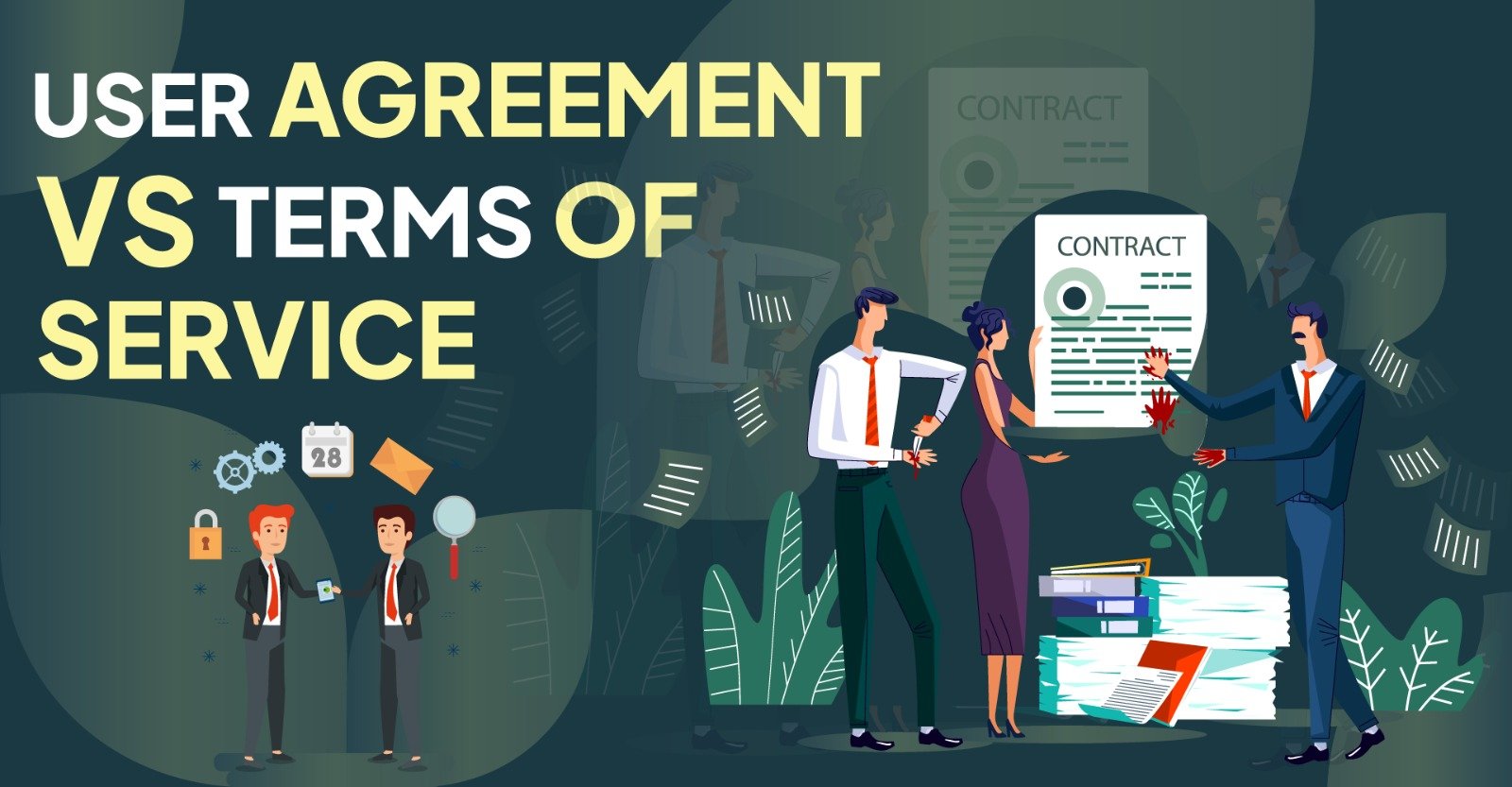We’ve seen the two terms tossed around willy-nilly, but what’s the difference between a user agreement vs terms of service? Do they mean the same thing or are there subtle variations between them? Let’s investigate further.
What is a User Agreement?
A user agreement is a legal document that outlines the conditions whereby users may interact with a specific product or service. This could include a physical product, consulting services, payments, or interactions with a website.
Such agreements will typically start by defining criteria of who can or cannot engage with that specific business. For example, the Coinbase user agreement outlines that a person must be at least 18 years of age and have a valid bank account to be able to access the exchange.
The Coinbase user agreement is incredibly complex and wordy — par for the course when you consider it’s laying down the rules for a cryptocurrency exchange, but the level of detail for each agreement will vary according to business requirements.
At the minimum, a user agreement should clearly outline how customers can interact with certain products and services, including insights into things like prohibited activities, intellectual property rights, disclaimers of liability, termination clauses, and dispute resolution mechanisms.
What is a Terms of Service?
A terms of service, also referred to as a terms of use or terms and conditions, is a similar agreement between a website or company owners and its users. It also aims to establish the necessary rules, guidelines, and conditions that customers must agree to when using those products and services.
Stock photo service Shutterstock’s Terms of Use, for example, start by highlighting things like intellectual property rights, and conditions around distributing and copying Shuttestock content. It also goes into detail about trademarks and infringement notices.
That makes sense for a company like Shutterstock — it isn’t concerned about the age of its users but wants to remind them that purchasing an image doesn’t make them the exclusive owners of that content. A purchased image can be used for a specific commercial purpose but ultimately remains the property of Shutterstock.
Again, each terms of service document is unique to the business for which it is developed but usually covers clauses like user responsibilities, acceptable use policies, intellectual property rights, limitations of liability, dispute resolution processes, and termination clauses.
This is a legally binding agreement and violations of the policy can result in fines or other legal action. Users are typically required to read the agreement and check a box confirming that they agree to the terms before proceeding. However, as we both know, most usually skip that part.
User Agreement vs Terms of Service: Are They the Same?
Yes, both user agreement and terms of service refer to the same thing and we can confidently state that there is no difference between the two. Each agreement wants to establish the legal playground between a company and its users, protecting both parties in the process.
The only difference lies in the verbiage used to describe the document, so if you come across either in the wild, feel free to assume that they mean the same thing.
Want to Generate Your Own?
A user agreement or terms of service is a must-have for any online business or those that want to protect their intellectual property. As such, you should consider a professionally-drafted agreement that takes into account your unique business needs and wants.
Enzuzo’s terms of service generator can help you build the unique legal page you’re looking for, one wholly customized for your business. It’s free to sign up and build for one domain — all policies have been vetted by human lawyers and are fully compliant with data privacy laws like the GDPR, CCPA, and PIPEDA.
You could also use a terms and conditions template, but it may not be as robust as the generator. What’s more, Enzuzo’s generator auto-updates when it detects changes in privacy regulations. That’s a no-brainer.
👉 Create a Free Terms of Service Using Enzuzo's Terms of Service Generator

